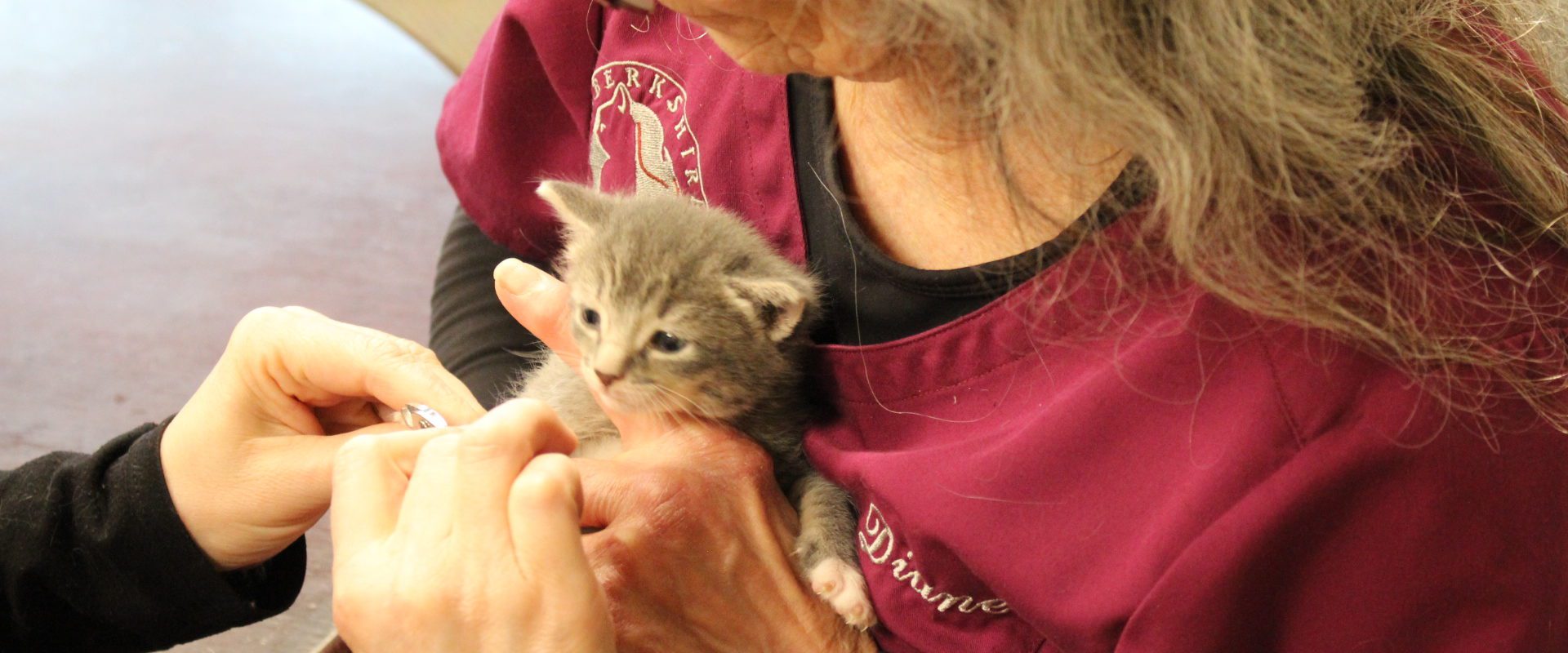Berkshire Humane Society helps others; now asking for help
Berkshire Humane Society is overwhelmed with more than 150 shelter animals and high demand for animal services, including providing low-cost spay and neuter surgeries for cats, filling pet food bank requests and helping community cats. The nonprofit organization is asking animals lovers to help with an escalating situation by donating cash or goods, adopting a homeless animal or sponsoring an animal’s adoption, providing a specialized foster home or volunteering. To move animals from the crowded shelter into homes sooner, the shelter is taking $100 off dog and cat adoption fees through July 15th. In addition, adoption fees of all small animals except rabbits will be waived.
“I’ve never seen it like this,” said John Perreault, Executive Director of Berkshire Humane Society. “We have waiting lists for people to surrender their pet; our kennel is full, our cat room is full and we’re overflowing with small animals –more than double our normal capacity. We can’t keep pet food in our pantry due to increased assistance requests and our low-cost spay and neuter program is booking into February. It’s a harmonic convergence of need and we’re looking to the good people of Berkshire County and beyond to help fulfill that need.”
“We’re asking people to put their dollars to work in their community by donating cash to support our life-saving programs,” said Perreault. The shelter is also accepting donations of dog and cat food and cat litter. “If you were ever thinking about adopting an animal, now is the time. We have the best selection of animals that we’ve had in years. And if you can’t adopt, you can sponsor the adoption fee or one of our animals, individually or through your business.” Animal fanciers can also volunteer at the shelter or participate in expanded opportunities to foster animals that need individual attention before becoming adoptable.
Perreault hasn’t seen shelter populations as large as they are since the late 1990’s. He attributes this to a number of factors. “Other shelters throughout New York and New England previously reported a “post-COVID” surge in surrenders. We hadn’t seen that, but now we are. People are losing their homes and their money and can’t afford food or veterinary care for their pets, if they can even find a vet appointment. Some people are so desperate that they’ve abandoned their pets at our door, as was the recent case for a young hound and box of guinea pigs. We ask anyone needing to surrender an animal to work with us and find an appropriate time for us to accept your animal. It may take a few weeks, but together we can find that perfect home.”
Other factors ballooning animal numbers is a lack and timely availability of low-cost spay and neuter programs for pet cats and community cats. “The result is kittens, kittens, kittens!” said Perreault. The shelter has also admitted more animals recently to help towns deal with unhealthy overcrowding of animals in homes. “We’ve taken in more than 70 dogs and cats from just two removal cases where we worked with the State and local municipalities.” On top of that, more adoptable cats have been captured through the shelter’s Community Cat Program.
But it’s not just the number of animals taxing capacities. Shelves in the food bank are depleted regularly and more pets need medical attention before they are adoptable. Animals are also staying longer at the shelter because they await scarce spay and neuter appointments. With a shortage of local veterinarians, the shelter has advertised for an inhouse veterinarian to address needs.
With reduced and waived adoption fees, shelter staff hope to cycle animals out into homes more quickly and reduce waits for animals coming in. They collaborate with other animal welfare organizations to bring in bulk food donations and cat litter to keep the food bank open and are creating a specialized foster program for animals that need individualized attention before being adoptable.” Berkshire Humane Society recently opened a Wellness Clinic in the former Allen Heights Veterinary Hospital to provide affordable and accessible preventative care. “We’re doing what we can to relieve the pressure,” said Perreault, “but as a nonprofit, we can only do as much as our supporter provide. On behalf of the animals, we’re asking for your help.”
See press coverage:
Berkshire Eagle

